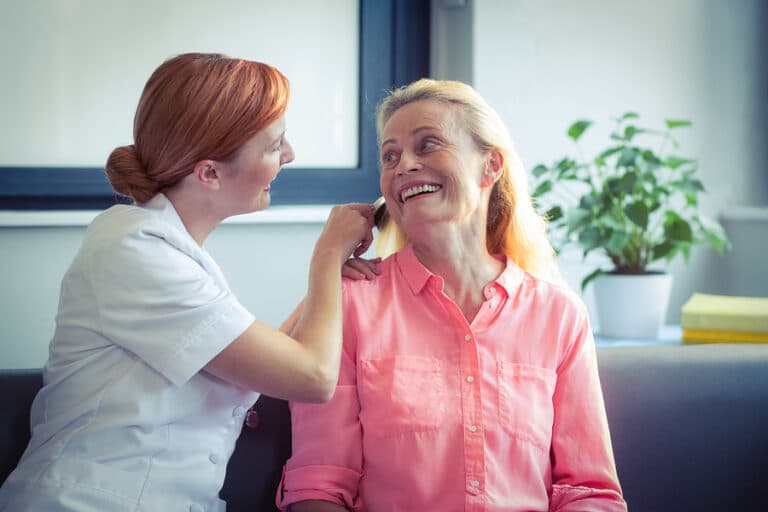There is often more to hair than meets the eye. Hair is directly related to personality and is a source of confidence, even in the older years. Understanding this, it’s easy to see why changes, such as thinning, graying, or hair becoming more fragile, can impact a senior’s emotional health. When this happens, it’s important for seniors to get support from loved ones and senior home care, both of which can help them maintain a positive mindset as they adjust to changes.
Recognizing the Emotional Effects of Hair Changes in Seniors
Many people view gray hair or thinning hair as an obvious indicator of age, which can cause feelings of inadequacy or a loss of youth. This is particularly upsetting for seniors who have always had thick, colorful hair or who have used their hair as a means of self-expression. Additionally, because hair loss or thinning could signify a shift in how they seem themselves, as well as how they believe others perceive them, it can also cause anxiety or even feelings of depression.
Adapting to Hair Changes
With the support of loved ones and senior home care, seniors can learn to adapt to hair changes. Some tips the support team may offer include the following:
- Recognize Emotions: It’s critical for seniors to acknowledge and accept their feelings, even if those feelings include depression, irritation, or anxiety about hair changes. Letting themselves experience these feelings without passing judgment can help them process the emotions and come to terms with them. For seniors and loved ones, it’s important to listen and validate their feelings without trying to change them.
- Stay Informed: For some seniors, it might be helpful to learn the reasons behind these changes. While graying or thinning hair might be a normal part of aging, there are hereditary issues that might also be in play. Understanding these things may help ease negative feelings seniors are dealing with.
- Explore New Hairstyles: Seniors don’t have to settle for a style they don’t like or that no longer works for them. Senior home care can help them research ideas to show to their hair stylist or encourage them to talk with their stylist about their concerns.
- Try a New Hair Color: Changing the color of their hair might be an option for some seniors. Not only that, but a change like this can be empowering.
Increasing Confidence Despite Hair Changes
As mentioned above, hair can be a source of confidence or a lack of confidence. By having their feelings heard and validated, seniors can begin to make changes that increase how they feel about their hair and themselves. Additionally, seniors can also increase their confidence by focusing on eating a healthy, balanced diet, drinking enough water, working out, and taking part in enjoyable activities.
Seniors’ hair changes can have a significant emotional impact, but they don’t have to define who they are. Senior home care and loved ones can help seniors handle issues that arise because of hair changes with confidence, leading to better health and emotional well-being.
If you or an aging loved one are considering hiring senior home care in Charleston, SC, contact Heart of the Carolinas Home Care at (864) 990-4345.
Heart of the Carolinas Provides Senior Home Care Services in Greenville, Mauldin, Greer, Spartanburg, Anderson, Pawleys Island, Myrtle Beach, Hilton Head Island, Charleston, Columbia, Simpsonville, South Carolina, and surrounding areas.
- Is it Possible to Prevent Family Caregiver Burnout? - April 25, 2025
- Home Care Assistance Helps Seniors After A Fall - April 9, 2025
- How Home Care Supports Seniors Who Are Hard of Hearing - March 28, 2025

